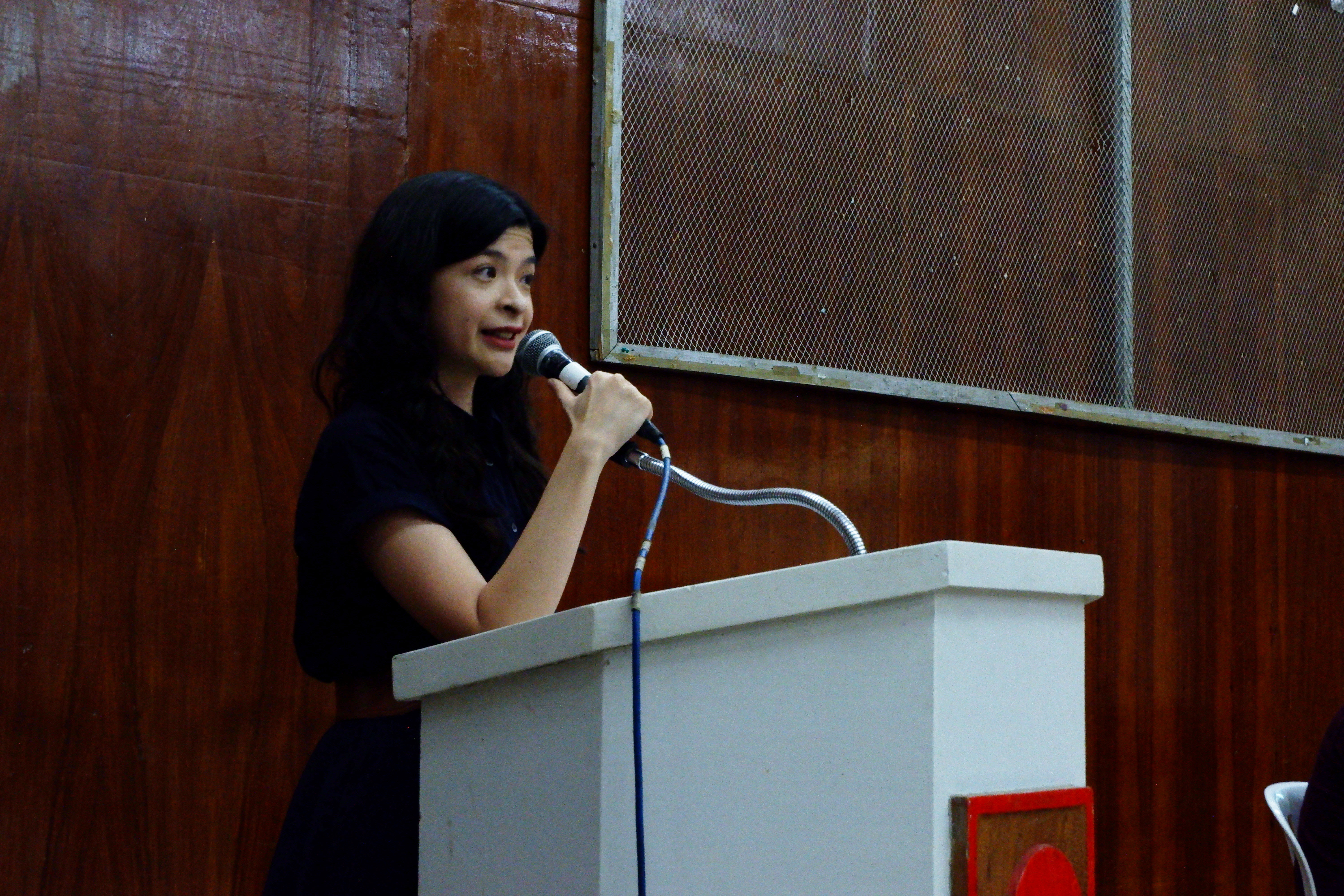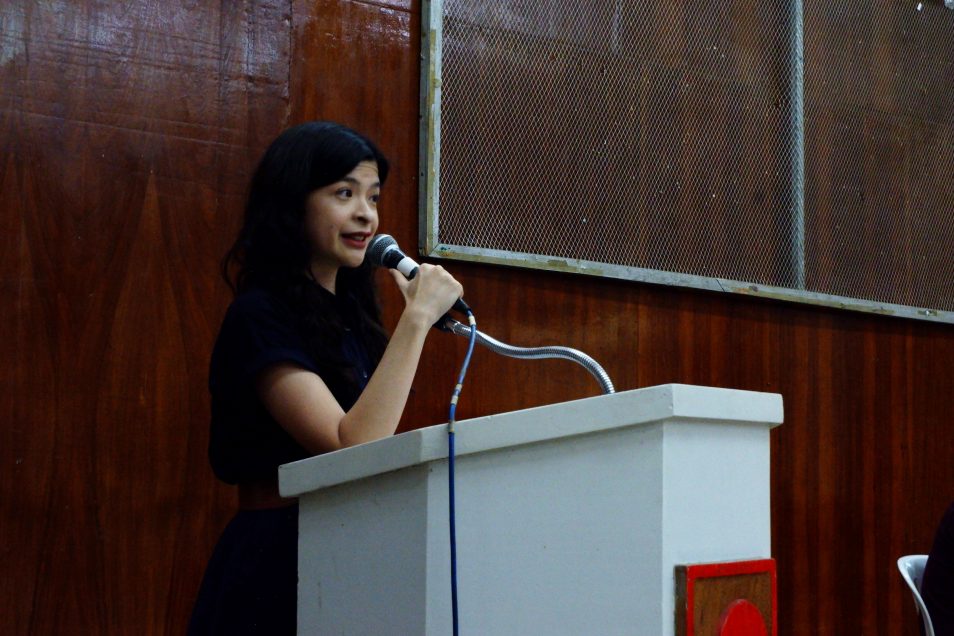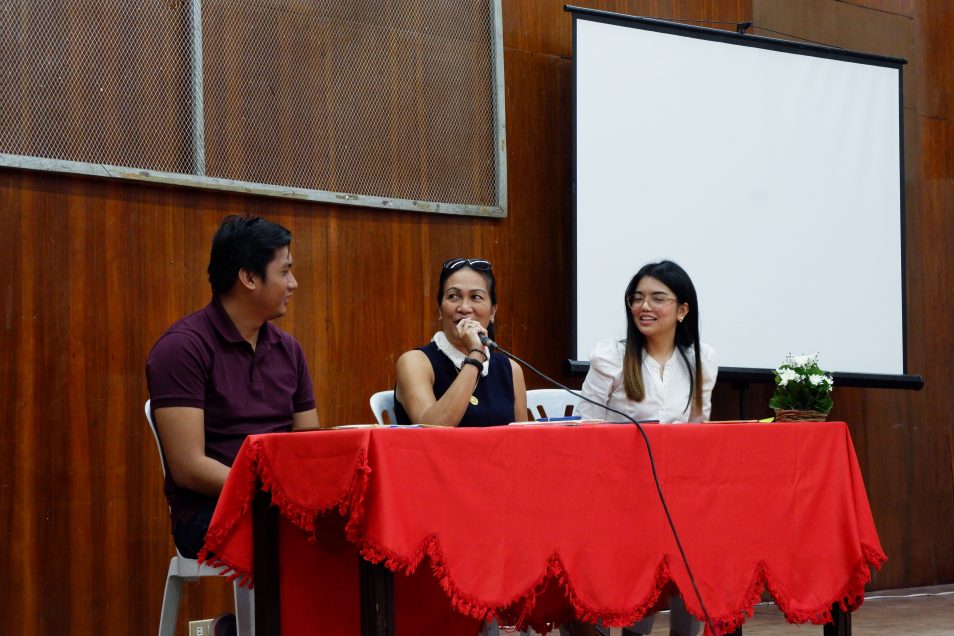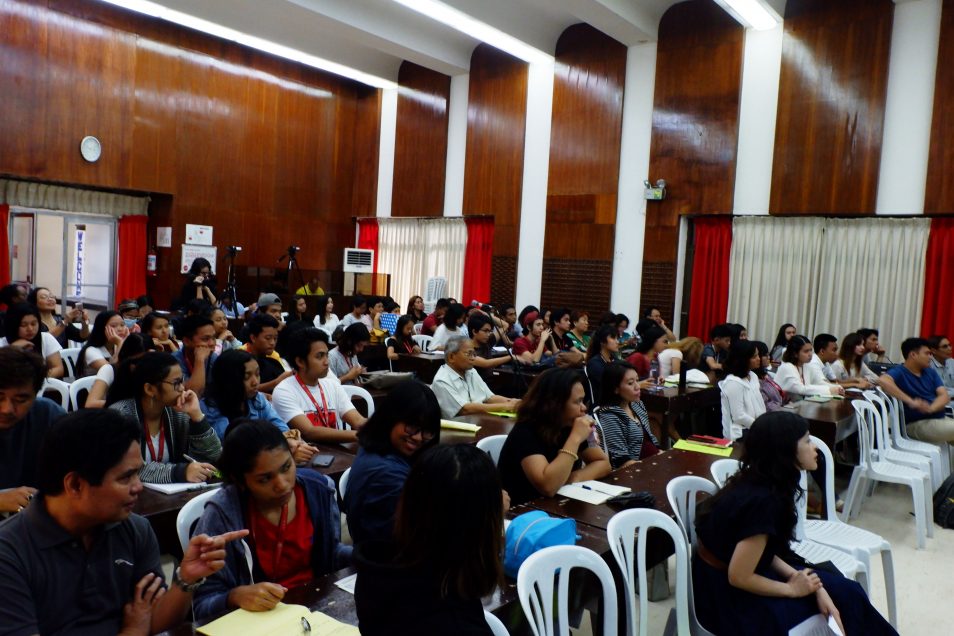
McLuhan fellow highlights responsible storytelling in trauma journalism
“I think of trauma journalism as an attempt to make the public imagine. You cannot move, you cannot care, if you cannot see,” said Patricia Evangelista, 2019 Marshall McLuhan awardee and multimedia journalist of Rappler during the Marshall McLuhan Forum Series on Responsible Media, January 23, 2020 at the Silliman University Multi-Purpose Room.

Patricia Evangelista, 2019 Marshall McLuhan awardee and award-winning multimedia journalist of Rappler, talk on “Covering Trauma: Reporting for the Imagination” at the Marshall McLuhan Forum on Responsible Media, January 23 at Silliman University (SU).
Evangelista specializes in reporting disasters, conflicts and development issues, such as human rights, extrajudicial killings, the reproductive health campaign, among others.
In her lecture on “Covering Trauma: Reporting for the Imagination,” Evangelista shared how she uses narrative reporting when writing about trauma.
Evangelista said journalists should be able to know enough details to write a narrative, which means having several sources, diligence in seeking comments and thorough note-taking to include all sensory elements.
“Narrative reporting is built on research. You can’t tell a story if you don’t know enough to make it come alive,” she said.
Survivors and witnesses of trauma, said Evangelista, must be approached with care, respect and kindness.
“The rule of thumb is to ask yourself how you want to be treated and try to treat them the same way,” she added.
Evangelista emphasized the importance of asking for consent before, during and after interviewing survivors and witnesses so that they are aware of their right to refuse to be published.
Evangelista also warned journalists on “confirmation bias.”
“Be carefully skeptical of heroes and villains, even if they’re the subjects of your stories. Allow for contradictions [and] exculpatory evidence, even if it disproves the narrative you thought you knew,” added Evangelista.
Safety on the field, working with a newsroom or team, and self-care are also important for journalists covering traumatic events, said Evangelista.
She also reminded the audience that journalists cannot promise anything to trauma survivors except to tell their stories the best they can.

Panelists during the Marshall McLuhan Forum at SU (L-R): Roi Anthoni Lomotan, Philippine Information Agency-Negros Oriental information officer; Mary Judaline Flores-Partlow, Philippines News Agency-Dumaguete bureau chief; and Jameela Antoniette Mendoza, SU Office of Information & Publications editorial assistant.
The forum series is an initiative of the Embassy of Canada in the Philippines, held annually throughout the country to recognize excellence in Philippine journalism.
“We see this annual forum as an opportunity to continue to underline our priorities with the belief that a responsible and free media is very important in a democratic society,” said Carlo Figueroa, public affairs officer of the Embassy of Canada.
The Marshall McLuhan fellowship, said Figueroa, is on its 22nd year of awarding Filipino journalists who excel in the field of investigative journalism.
Aside from the McLuhan fellowship, Evangelista has also received national and international recognition for her documentaries and long-form multimedia reports, such as the Agence France-Presse Kate Webb Prize for exceptional journalism in dangerous conditions; the Union Catholique Internationale de la Presse’s Titus Brandsma Award for Emergent Journalism; the Ten Outstanding Young Men in Nation’s Service and Ten Outstanding Women in Nation’s Service for Journalism, among others.
She is a fellow of the South East Asian Press Alliance, the Dart Center Ochberg Fellowship for Trauma Reporting and the 2018 John Logan Nonfiction Fellowship at the Carey Institute for Global Good.
Evangelista was also a fellow of the SU National Writer’s Workshop in 2006.

Students, mostly from the SU College of Mass Communication, attended the forum.
(Photos by Kyle Andree Bolhano)


